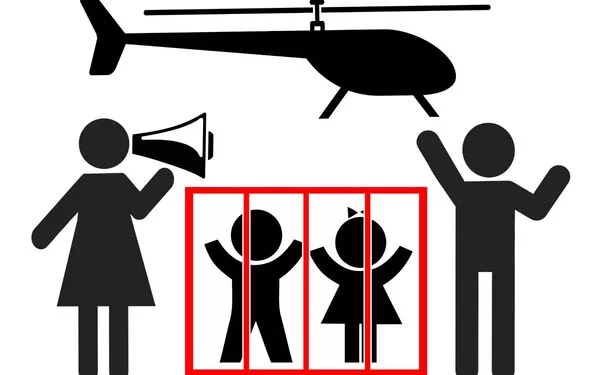Helicopter parenting is a parenting style defined by excessive hovering and overinvolvement in the lives of a child. While it is frequently associated with parents of younger children, such as elementary-aged children, it can persist into adolescence and even beyond. Many parents may unknowingly engage in helicopter parenting.
While most parents think that giving their children opportunity to be independent is beneficial, a new research reveals that they may be participating in more ‘helicopter parenting’ than they realize. As they grow older, youngsters begin to do things without their parents’ supervision, such as trick-or-treating with friends, staying home alone, or riding to a friend’s house.
While most parents think that giving their children opportunity to be independent is beneficial, a recent University of Michigan Health C.S. Mott Children’s Hospital National Poll on Children’s Health reveals that they may be engaged in more “helicopter parenting” than they realize.
“There is a significant gap between parent attitudes toward promoting children’s independence and what they actually allow or encourage their children to do without supervision,” said Sarah Clark, M.P.H., co-director of the Mott Poll.
“This suggests some parents may be missing opportunities to guide their children in tasks of autonomy and unintentionally hindering kids’ development of independence and problem-solving skills.”
Parents can ease in with small steps such as letting their child spend time with a friend at a familiar public place. Discussions before and after can help parents assess if their kids understand the importance of following safety rules.
Sarah Clark
Four out of every five parents of children aged 9 to 11 believe that giving their children free time without adult supervision is beneficial. According to the research, however, fewer parents say that their child accomplishes specific things without an adult present.
Three out of every five parents have let their tween-aged child to stay home for 30-60 minutes, and half report that their child has separated from them to find an item in another aisle of the shop. Less than half of parents report that their child has waited in the car while the parent conducts a quick errand, walked or biked to a friend’s house, or played at the park with a friend, and less than a sixth report that their child has trick-or-treated with friends.
The primary reason for parents’ reluctance to encourage such independent milestones was safety. However, while slightly more than half of parents are concerned that someone will scare or follow their child, only 17% believe their neighborhood is unsafe for children to be alone.
“Worrying about your child is natural to some level. However, some parents are restricting their child’s autonomous activities as a result of widely publicized media reports, even if those results are extremely rare or cannot be avoided,” Clark added.

“Parents can ease in with small steps such as letting their child spend time with a friend at a familiar public place. Discussions before and after can help parents assess if their kids understand the importance of following safety rules.”
Other parents claim they discourage their children from doing such things alone because they don’t believe they’re ready, while others believe state or local laws prohibit children of that age from being alone and that someone will contact the police. A little more than one in ten parents believes that if their child is seen unsupervised, others will think they are a lousy parent.
Over half of parents believe that unsupervised children cause problems, a quarter have criticized another parent, and 13% have been chastised for failing to appropriately supervise their child.
“Parents may be affected by ‘blame culture’ – the expectation that they will be criticized if something happens to their child,” Clark said. The poll report also suggests a disconnect between what parents of younger children ages 5-8 say and what they do in fostering independence.
Almost three-quarters of parents say they make it a point to have their child do things on their own. However, less than half of these parents report that their child regularly engages in activities such as conversing with the doctor or nurse at health visits, deciding how to spend allowance or gift money, conversing with unfamiliar adults in business situations, such as ordering at a restaurant, or preparing their own meal or snack.
Safety, becoming trapped in routines, the parent’s view that their child doesn’t want to do things themselves or isn’t mature enough, thinking it will take too long or that it won’t be done in the parent’s preferred way were all causes. Clark observes that the elementary school years are critical for fostering independence with parental guidance.
“Becoming independent is a gradual process of allowing children increasing amounts of freedom, with parents there to teach skills and help the child understand the consequences of their choices,” said Clark.
“As children gain experience and comfort with tasks, they can take on responsibility for completing them on a regular basis.” According to research, promoting independence boosts a child’s self-confidence, resilience, problem-solving skills, and mental health.”





